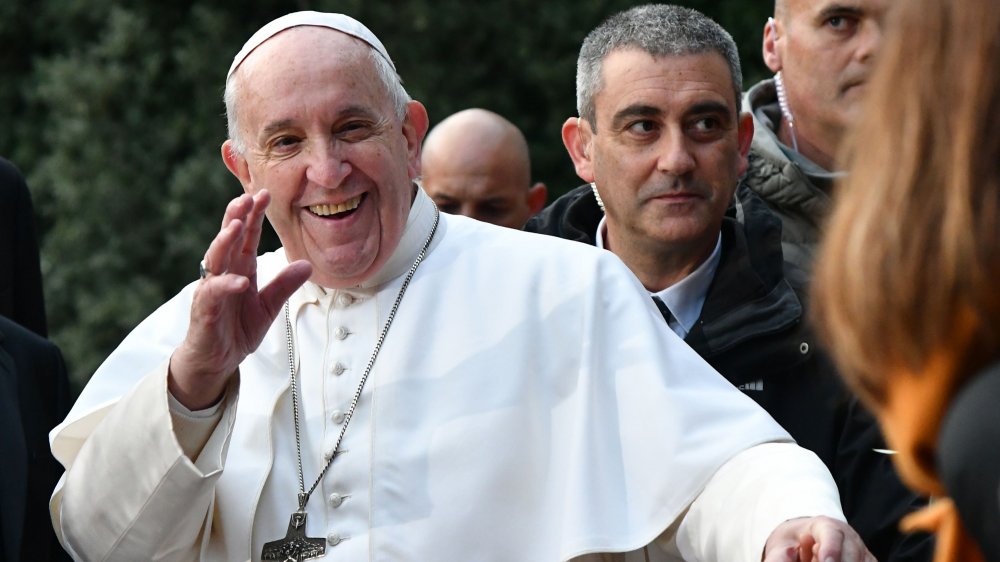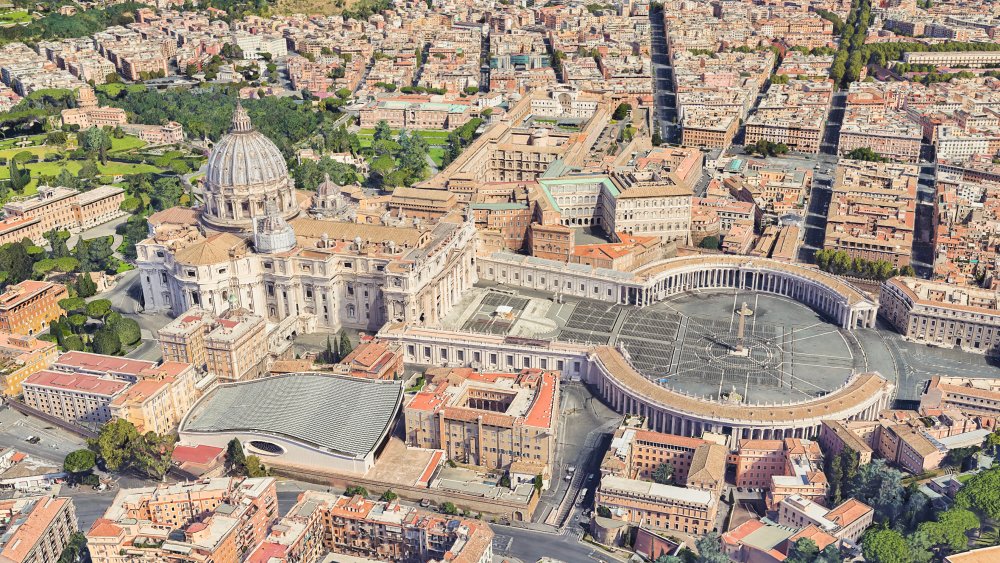How Much Power Does The Pope Actually Have?
From a civic standpoint, the pope is the monarch of Vatican City, which is an independent city-state whose two-mile boundary is entirely surrounded by the city of Rome. (That's in Italy.) Vatican City has its own Euros and about 600 citizens, most of whom live abroad. As for size — it measures about 100 acres, so you could fit about eight Vatican Cities into, say, Central Park in New York City, though why you'd want to is anyone's guess. But as such, it's the smallest country in the world, geographically speaking.
The country itself was created by the Lateran Treaty in 1929. There's only the one city, or city-state, which simplifies maps. It has its own diplomatic corps, but has only had formal diplomatic relations with the United States (really, isn't that the one that counts?) relatively recently. Prior to that there were "personal representatives" of the president to the pope. President Ronald Reagan and Pope John Paul II (now considered a saint, though probably not just for this) established formal diplomatic relations in 1984.
'Your own... personal... country'
As for power within the setting of Catholicism itself — the Catholic Church has its own internal set of laws, called canon law (pronounced like the artillery piece) which establishes the rights and responsibilities of believers, both clergy and not-clergy. Catholics recognize the Pope (currently Francis, elected in 2013) as supreme head of their church. As such, there are two sets of laws in play: the aforementioned canon law, but also what is called divine law. So for instance, canon law holds that a child may not marry that child's parent. It's a canon law that's considered to be based in divine law.
So the pope has some standing on the global stage as a head of state. When he speaks, people, Catholic and not, listen. The first pope to address the United Nations was Pope Paul VI, in 1965. Pope John Paul II spoke to the general assembly twice. He was followed by Pope Benedict XVI in 2008, and Pope Francis in 2015.
The pope also has authority over the Catholic Church and its members specifically, but the authority is not absolute. Over what are seen as church-made laws, yes. Over divine laws, no.
Fun fact: The Vatican has long had an interest in tech. Extensive solar panels help power the country. Marconi himself set up the original Vatican radio station. Oh, and then there's the digital version of the rosary. Believe it or not, the Vatican even owns its own astronomical observatory, located in Arizona.

